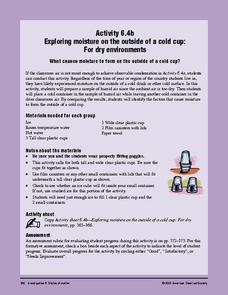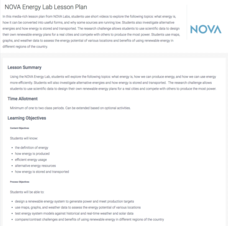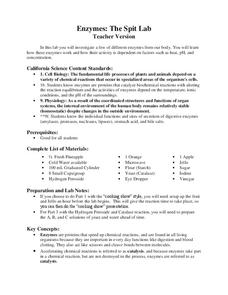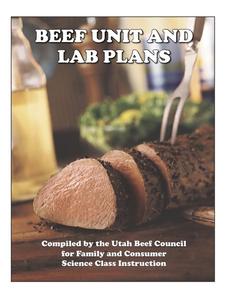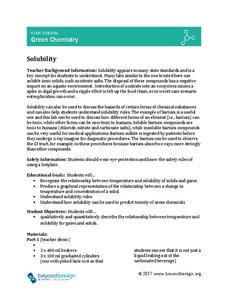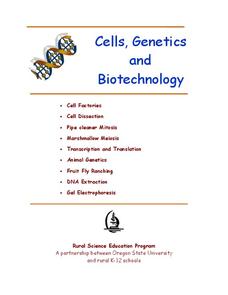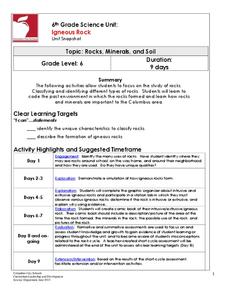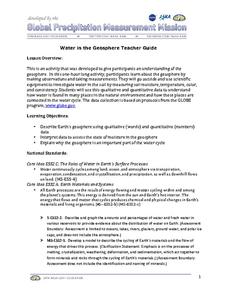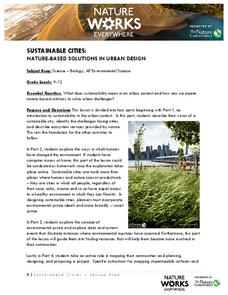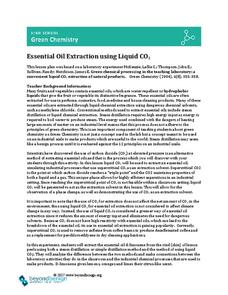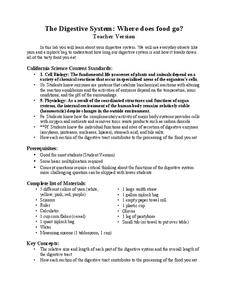Consortium for Ocean Science Exploration and Engagement (COSEE)
Carbon Dioxide & Krill: Impacts
What effects do temperature and carbon dioxide levels have on the zooplankton of Antarctica? This concluding lesson plan in a short unit on climate change and the ocean helps environmental scientists answer these questions. After...
American Chemical Society
Exploring Moisture on the Outside of a Cold Cup: For Dry Environments
If the area you live in is arid, or the preceding experiment in this unit didn't yield obvious results, use this one in place of it to help reveal where condensation comes from. The mini unit that this is part of a comprehensive...
California Academy of Science
Coral and Chemistry
Using cabbage juice as a pH indicator, future scientists explore the effect of increasing carbon dioxide on the pH of the ocean and relate it to the health of coral reefs. Ideal for an earth or environmental sciences course, this lesson...
Polar Trec
Calorimetry Lab
Young people between the ages of 11–13 need on average about 2,000 calories per day. Within the lab, groups learn about calorimetry and respiration. They explore how it pertains to humans and animals living the Arctic where cold...
PBS
NOVA Energy Lab Lesson Plan
Can our energy resources keep up with our ever-growing population? Science scholars learn the basics of energy and Earth's energy resources during an electrifying lesson. The resource combines video clips and an engineering design...
LABScI
Vision Lab: The Eye
Our bodies have some amazing capabilities, but there are some limitations. Explore the limitations of the human eye through the eighth lab activity in a series of 12 biology lessons. Individuals measure their own peripheral vision...
Chemistry Collective
Virtual Lab: Weak Acid and Base Problems
You'll feel strongly about this weak acid and base virtual lab! Scholars experiment with the wonders of dissociation constants in a simulated lab environment. The accompanying written work includes buffer preparation, titration curves,...
Howard Hughes Medical Institute
Human Impacts on Biodiversity
Have you always wanted to take your science class on an amazing field trip they will never forget? Now you can! Observe the wildlife in an African savanna through trail cameras with a five-part data analysis activity. Learners analyze...
College Board
AP® Computer Science: A Picture Lab Student Guide
How do you modify digital pictures? In this lab learners write methods that modify digital pictures. They how to traverse a two-dimensional array of integers or objects, and are introduced to nested loops, binary numbers,...
LABScI
Enzymes: The Spit Lab
Enzymes in our bodies each have a job to do. Learn the factors that affect the activity of some enzymes using the third activity of an informative 12-part biology series. A three-part laboratory activity asks teams to investigate how...
LABScI
Cell Diffusion and Permeability: The See-Thru Egg Lab
Create a model to study a microscopic phenomenon. The seventh of 12 lessons uses an egg (without its shell) to represent a cell membrane. Using different solutions, learners explore the concept of cell diffusion. They monitor...
Royal Society of Chemistry
Green Plastics—Chemistry Outreach
How do green plastics reduce waste and environmental pollution? Budding scientists create and test a variety of compounds used in green plastics during an insightful experiment. Beginning with startling statistics and ending with...
Utah Beef Council
Beef Unit and Lab Plan
What are the proper methods for cooking various cuts of beef? What are some basic rules regarding meat food safety? Here you'll find 10 lab plans with a variety of beef cookery activities, perfect for a home economics or cooking course.
Beyond Benign
Solubility
Enhance your class' ability to understand solubility. Science scholars examine how temperature and concentration affect solubility using an interesting lab experiment. The introduction and procedure also discuss the relationship between...
Howard Hughes Medical Institute
Got Lactase? The Co-Evolution of Genes and Culture
Does the human body evolve as quickly as human culture? With a stellar 15-minute video, explore the trait of lactose intolerance. Only about 1/3 of human adults seem to still have the enzyme lactase and therefore, the ability to digest...
Rural Science Education Program
Cells, Genetics, and Biotechnology
For scholars tired of reading the textbook, this unit includes nine hands-on lessons. Through group work, lab activities, experiments, and even one inquiry-based lesson, scholars apply knowledge about cells, genetics, and...
Columbus City Schools
Igneous Rock
These rocks are HOT! Well, they used to be, anyway. Take young geologists on a two-week journey through the life and times of the average igneous rock. Lab groups work together to hypothesize about intrusive and extrusive igneous...
McAuliffe-Shepard Discovery Center
Global Warming in a Jar
This well-organized lab activity introduces earth science pupils to the greenhouse effect. They will set up two experiments to monitor temperatures in an open jar, a closed jar, and a closed jar containing water. Ideally, you would have...
Curated OER
Water in the Geosphere
Through a PowerPoint presentation and the embedded animation and video, earth science enthusiasts find out about the moisture in the soil beneath our feet. In the animation, follow a water molecule on its path through the water cycle. As...
Nature Works Everywhere
Sustainable Cities
Investigate aspects of sustainable cities and relate them to where you live! A detailed lesson first investigates the definition of sustainability. Learners then explore human impact on the environment and social justice. Their final...
Beyond Benign
Essential Oil Extraction Using Liquid CO2
When life hands you lemons ... experiment on them! Green chemistry gurus compare extraction methods for essential oils through a lab activity. Lab groups use traditional distillation and liquid carbon dioxide extraction...
Kenan Fellows
The Little Stuff Can Make a Big Difference
Great things come in small packages! What better way to illustrate this point than a week-long look at nanotechnology? Earth science scholars explore water quality issues through lab activities, then research new innovations in nanotech...
Code.org
Using Simple Commands
Turtles might be slow, but class will zoom by when your pupils build a program in which reptiles draw a grid. Using App Lab and JavaScript, class members build a program to find the most efficient way to draw an image of a...
LABScI
The Digestive System: Where Does Food Go?
Would you believe that your digestive system stretches to five times your height?! Help your pupils to understand this relationship as they work through the laboratory exercise. The first instructional activity of a 12-part series is a...

